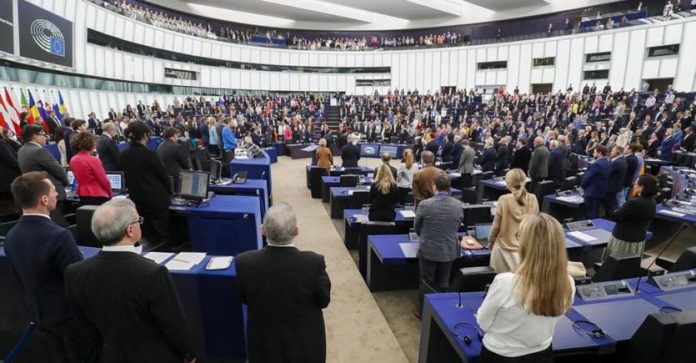The European Parliament will hold the first vote to formally approve the migration pact at its plenary session in April, Euractiv reports.
In the EU legislative process, after EU lawmakers reach a preliminary political agreement through inter-ministerial negotiations (the so-called “trilogue”), co-legislators, namely Members of the European Parliament (MEPs) and EU ministers, must formally approve the agreement in two separate votes.
According to a note from the Conference of Presidents, the MEP body responsible for setting the plenary agenda, the current timetable set on Wednesday (31 January) foresees a vote in the Parliament’s civil liberties committee (LIBE) in February, technical adjustments in March and a vote in April.
According to the note, the European People’s Party (EPP) has asked for a vote on the migration pact no later than March. The April plenary will be the final session of this mandate before the next European elections in June.
The migration package includes a group of five regulations that the EU institutions have been discussing throughout this mandate since September 2020, following the publication of the European Commission’s legislative proposals.
EU ministers and the European Parliament have since sought a compromise on the issue and finally reached an agreement in December 2023.
These laws – Eurodac, Screening, Asylum Procedure Regulation, Regulation on Asylum Migration Management and Crisis Management Regulation – will set out EU rules on the management of non-Europeans arriving in the EU. They will have a decisive impact on what happens at borders.
After years of trying to find a harmonised approach to EU-wide border controls, late last year the European Commission welcomed the agreement as the first EU migration management deal.
In December, 55 civil society organisations signed a common statement opposing the approval of the migration pact, saying that “in its current form, the pact encourages detention, expulsions and racial profiling, effectively undermining the fundamental human right to seek security,” the letter argued.
